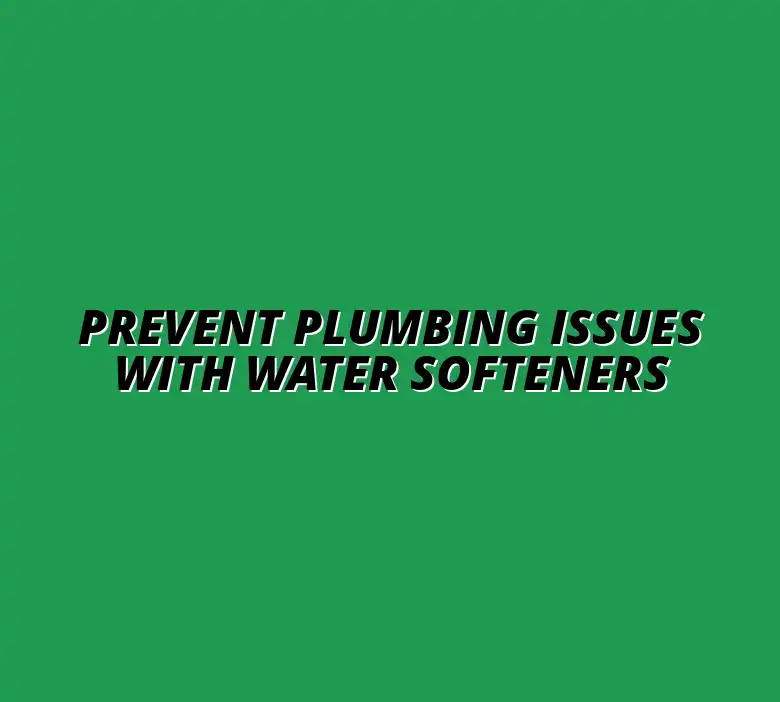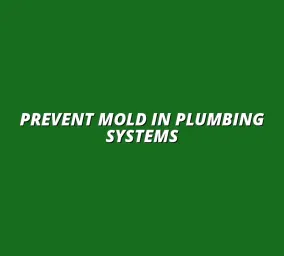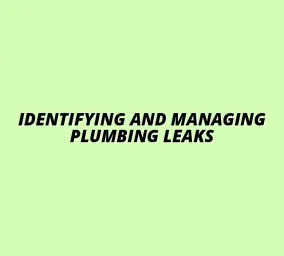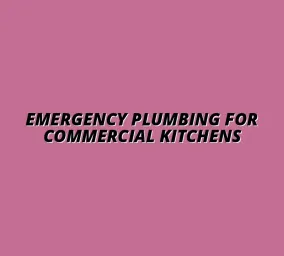Prevent Plumbing Issues with Water Softeners
Understanding Water Softening and Its Importance for Plumbing Systems
Water softening is a critical process that addresses the challenges posed by hard water, which can negatively impact plumbing systems and household appliances. Hard water contains high levels of *dissolved minerals*, such as calcium and magnesium, that can lead to many problems. By understanding how *water softening* works and its importance, homeowners can protect their plumbing systems and improve overall water quality. For more information on maintaining your plumbing year-round, check out these essential tips.
Defining Water Softening and Hard Water Issues
Water softening is the process of removing minerals from hard water, making it gentler on plumbing systems and household fixtures. Hard water can lead to significant issues, including scale buildup, reduced water flow, and decreased efficiency in household appliances. Recognizing these issues is the first step toward preventing damage and ensuring a healthy plumbing system. Learning how to prevent hard water damage is crucial for extending the life of your water heater.
The impact of hard water on plumbing and household appliances
Hard water can have several negative effects on your plumbing and appliances. Common issues include:
- Scale buildup on pipes and fixtures, leading to clogs.
- Reduced efficiency in water heaters, causing higher energy bills.
- Shorter lifespan of appliances, like dishwashers and washing machines.
Over time, these impacts can add up, resulting in costly repairs and replacements. Therefore, addressing hard water issues is essential to maintaining the health of your plumbing system. Regular inspections can help prevent plumbing leaks and other issues.
Common minerals causing hard water problems
Hard water is primarily caused by minerals dissolved from geological formations, most notably:
- Calcium: Often found in limestone deposits, calcium can create stubborn scale.
- Magnesium: Similar to calcium, magnesium contributes to hardness and scale formation.
- Iron: While beneficial in small amounts, excess iron can lead to staining and unpleasant tastes.
Understanding these minerals helps homeowners recognize and tackle the problems associated with hard water.
The Role of Water Softeners in Maintaining Plumbing Health
Water softeners serve as a vital tool in combating the issues caused by hard water. They work by exchanging the hard minerals with sodium or potassium ions, effectively reducing hardness levels. By utilizing a water softener, homeowners can enjoy a multitude of benefits, including improved plumbing health and enhanced appliance performance. If you're considering DIY projects, learn how to install a bathroom water filter.
How water softeners work to prevent mineral buildup
Water softeners utilize a process called *ion exchange* to remove hard minerals from water. The system works as follows:
- Hard water flows through a resin tank, where resin beads attract and bind to calcium and magnesium ions.
- In exchange, the beads release sodium or potassium ions into the water.
- Regeneration occurs periodically, where the beads are cleaned using a salt solution, recharging their ability to soften water.
This process prevents mineral buildup in pipes and appliances, ultimately extending their lifespan and performance. Regular drain cleaning is also essential; find out more about its essential benefits here.
Comparing traditional water systems to softened water systems
When comparing traditional water systems to those with water softeners, the differences are striking. Softened water typically offers:
- Less scale buildup, resulting in fewer clogs and reduced plumbing issues.
- Improved efficiency in appliances, leading to lower energy consumption.
- Better overall cleaning with soaps and detergents, enhancing their effectiveness.
Making the switch to a softened water system can significantly improve not just plumbing health but also the overall quality of life at home!
Choosing the Right Water Softener for Your Plumbing System
When it comes to finding the right water softener for your home, knowing your options is crucial! There are several different types available, each with its own features and benefits. Let’s dive into the main types of water softeners to help you make an informed decision. For plumbing services in Edgbaston, Birmingham, consider contacting a local plumber.
Different Types of Water Softeners Available
Water softeners generally fall into two categories: salt-based and salt-free systems. Each type has its unique way of addressing hard water issues. Understanding how they work can guide you in choosing the best fit for your plumbing system.
Salt-based water softeners use a process called ion exchange. This involves replacing hard minerals like calcium and magnesium with sodium ions, effectively softening the water. On the other hand, salt-free systems utilize a different approach, often involving a template-assisted crystallization process. This prevents scaling but doesn’t remove minerals.
- Salt-based systems: Effective for severe hard water issues, they require regular salt refills.
- Salt-free systems: Environmentally friendly and low maintenance, but less effective for extreme hardness.
- Dual-tank systems: These provide continuous softened water, as one tank regenerates while the other is in use.
Comparing salt-based and salt-free water softeners
Let’s break down the differences further! Salt-based systems are generally more effective in reducing high levels of hardness, while salt-free systems can help with scaling prevention. Here’s a quick comparison:
| Feature | Salt-Based Water Softeners | Salt-Free Water Softeners |
|---|---|---|
| Effectiveness | Highly effective against hard water | Good for preventing scale |
| Maintenance | Requires regular salt refills | Low maintenance with no salt needed |
| Environmental Impact | Higher sodium content in wastewater | More eco-friendly option |
Installation Considerations for Water Softeners
Installing a water softener is an important step in prolonging the life of your plumbing. You have two primary options: professional installation or tackling it yourself. Both have their pros and cons!
Going the professional route ensures that the system is installed correctly, which can save you headaches down the line. Conversely, if you’re handy, a DIY installation can save money and give you a sense of accomplishment!
- Professional Installation:
- Expertise ensures correct setup
- Typically comes with a warranty
- DIY Installation:
- Cost-effective
- Can be a fun project if you enjoy home improvement
Identifying the best location for your water softener
Choosing the right spot for your water softener is essential for optimal performance. Consider areas such as basements or utility rooms, where plumbing connections are easily accessible. Make sure to avoid locations that may expose the system to extreme temperatures. Addressing hard water issues promptly can help prevent significant damage.
Additionally, it’s vital to ensure that there’s adequate space for maintenance and servicing. Keeping your water softener in a dry and ventilated area can help prolong its lifespan!
Ensuring Long-Term Benefits From Your Water Softener
Once you’ve selected and installed your water softener, it’s important to maintain it to maximize its benefits. Regular upkeep can keep your system running smoothly and effectively. Let’s explore some essential maintenance tips!
Regular Maintenance Tips for Optimal Performance
Taking care of your water softener involves a few key tasks. Regularly checking salt levels and scheduling professional maintenance can help ensure your system operates efficiently.
- Monitoring Salt Levels: Check every month and refill as needed.
- Cleaning the Brine Tank: Do this at least once a year to prevent buildup.
- Professional Check-Ups: Aim for annual inspections to catch potential issues early.
Scheduling professional check-ups for your water softener
While many maintenance tasks can be done at home, it's a good idea to have a professional check-up once a year. This ensures everything is functioning correctly and addresses any potential problems before they escalate!
During these visits, professionals can also offer valuable insights into your system's overall health and efficiency. This proactive approach can save you money in the long run!
Understanding the Environmental Impact of Water Softeners
Water softeners can have an environmental impact, particularly when it comes to salt discharge in wastewater. However, awareness and responsible use can help mitigate these effects.
Evaluating the sustainability of water softening practices
It's essential to consider the long-term sustainability of your water softening methods. Exploring options like salt-free systems or using less salt can be beneficial for both your plumbing and the environment.
Exploring alternatives and supplements to traditional softening methods
If you’re concerned about the environmental repercussions, you might want to look into alternatives such as reverse osmosis systems or conditioners that do not add salt. These options can effectively address hard water while being gentler on the planet!
Final Thoughts on Water Softeners and Plumbing Protection
Choosing the right water softener can significantly improve the health of your plumbing system while offering various benefits for your household. By understanding your options and committing to regular maintenance, you can enjoy all the advantages of softened water.
Summarizing the Key Advantages of Water Softeners
Water softeners contribute to overall household efficiency by:
- Reducing wear and tear on plumbing fixtures.
- Enhancing the performance of appliances.
- Lowering energy costs.
Reinforcing the financial and environmental benefits of installation
Investing in a water softener can lead to long-term savings. You’ll notice lower maintenance and repair costs, along with a reduced environmental footprint!
Encouraging Action for Plumbing Health
Now is the time to take control of your plumbing health! If you’re experiencing hard water issues, consider testing your water quality and evaluating whether a water softener is the right choice for you.
Providing resources for water testing and softener installation
Look for local services that can assist with water testing and professional installation. Many companies offer consultations to help you understand your needs and options!
Prompting readers to evaluate their plumbing systems for potential upgrades
Don’t wait until minor issues turn into major problems! Regularly assess your plumbing system and consider upgrades like a water softener to enhance your home’s efficiency and comfort.






